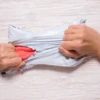As brands are building out their strategies for Circularity the most difficult mindset shift to address is the concept that a brand now wants its products back.
This is in contrast to the linear business model, where the entire system is designed to go in one direction – away from the brand and its operations. Success is when the customer buys something and keeps it.
In Circularity, a satisfied customer is still the goal where they keep it, use it, and enjoy it for as long as possible. AND at some point in a product’s life, the product and the system that manages that product is designed to take it back and enable its next use.
This article focuses on what that Circular system will look like with logistics, renewal and recommerce.
The first step – adjust your mindset towards Circular, this means getting comfortable and setting up your business such that products are flowing continuously in and out of your operations.
Secondly, the greatest efficiency is when two things are in place.
1. Products are designed for circularity, this means they are designed to be moved between brand and customers, resold again, and recycled.
2. The systems are in place to circulate this product. Systems is defined by the financials, the technology, and the operations for new stages in a product’s life.
While that sounds like a lot of work that needs planning, you can still get started and set up your Trade-In program in the meantime. The first opportunity is using existing tools for a different purpose. At Bleckmann we offer returns services to our clients, which means the integration of the sale of the product with a return’s software. The process flow is that the product is coming back, a return label is issued, and then once received in our warehouse we inspect the item and put it back into stock 90% of the time. Damaged items can get further inspected and can be cleaned/repaired and restocked.
This process is perfect for Trade-In, where we can leverage the returns integration to bring back items that customers are done with. Brands can add an incentive to get items back from customers and provide a guarantee of what will happen to the items.
Those items then come into our warehouse where they are inspected, cleaned, repaired, and then can be resold if they meet the quality standards or recycled if they don’t.
As Bleckmann provides the entire suite of services a brand needs for sales and distribution of their product, Recommerce is a natural extension of what we offer.
Each eligible Trade-In item becomes a new inventory for the brand. This inventory is unique and we treat it as such. As Trade-In products are usually used by a customer, they require individual data/information tracked on the product. Perhaps it needed a button repaired, or a small hole mended, this and hundreds of other quality standards are tracked within our software so that we can tell the customer about these unique attributes. Once the product meets the final quality standards it is available for resale.
Brands can resell in various ways, including in their stores, on their existing website, on a separate website, or even through resale marketplaces. Brands can manage resale aligned with their strategy for managing their sales.
Regardless of the sales channel, Bleckmann provides unique inventory management and distribution services. In the same way, new products are managed and distributed to customers.
In Circularity, there are new mindsets, technologies, products, and systems needed. And there are also opportunities to use existing assets and systems differently. The vision of circularity is to keep products in their highest use. Trade-in becomes a critical piece to ensure that brands can link their products along the circular lifecycle.
To learn more about how Bleckmann can help support your brand with Trade-In and Circular Operations reach out to trwsales@bleckmann.com
Oplossingen
Vrachtvervoer
By air, sea, road and rail, we deliver your products where they need to be.…
Logistiek & Fulfilment
Elke klant verwacht een snelle, betrouwbare en hoogwaardige dienstverlening.…
Circulaire oplossingen
Alle onverkochte en geretourneerde producten die jouw merk ooit op de markt…
Distributie
Een volledig assortiment internationale distributiediensten om een…













